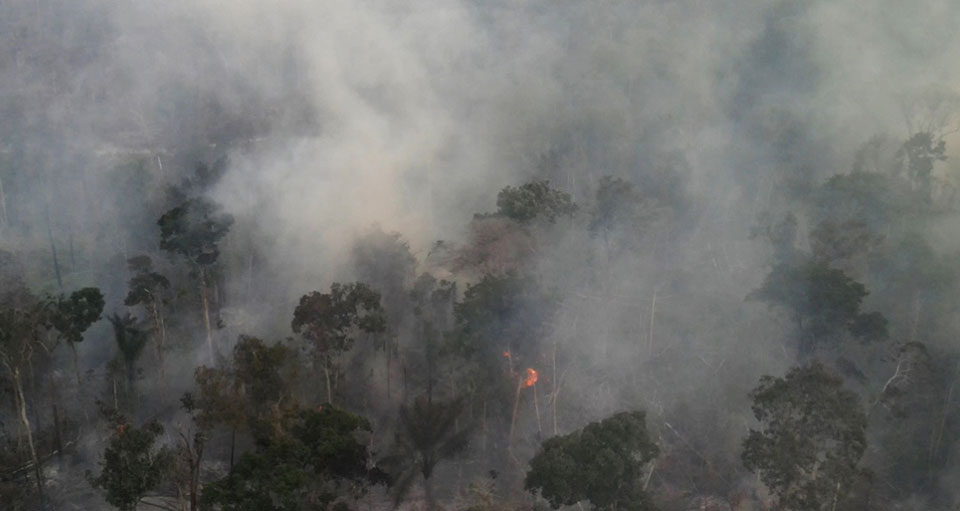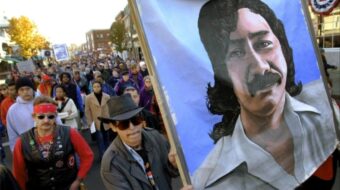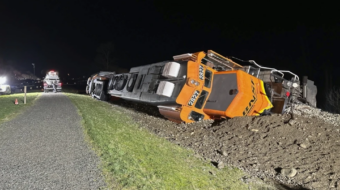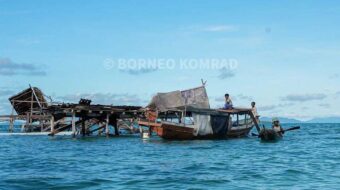
More fires burned in the Brazilian Amazon rainforest this August than in any month in nearly five years, thanks to a surge in illegal deforestation.
Satellite sensors detected 33,116 fires according to Brazil’s national space institute. The dry season months of August and September are usually the worst for both deforestation and fire.
It was also the worst August for fire in 12 years. That includes August of 2019 when images of the burning rainforest shocked the world and drew criticism from European leaders.
Brazil’s far-right President Jair Bolsonaro had recently taken office then and was turning environmental enforcement on its head, saying criminals should not be fined and promising development of the Amazon.
Mr. Bolsonaro, campaigning for re-election, downplayed the raging fires then and continues to do so today.
He told media network Globo on August 22 — the worst single day for outbreaks of fire in 15 years — that the criticism is part of an effort to undermine the nation’s agribusiness sector.
The fires are evident even several hundred miles away in the Amazon’s largest city, Manaus, where smoke has hung in the sky for weeks.
Meanwhile, one of the leaders of the Guajajara people of Maranhao state accused Mr. Bolsonaro’s government of committing genocide against the indigenous peoples who live in Brazil’s Amazon rainforest.
Olimpio Guajajara told Britain’s Channel 4 News on Wednesday night that the government was doing this by “violating our rights, stealing our land, causing much pollution, pushing their agribusiness, mining and polluting the rivers.”
“This government is the symbol of our extermination,” he said.
On Sunday, the last member of the Tanaru indigenous community — whose territory in Rondonia state was a small island of forest in a sea of vast cattle ranches — died.
The rest of his people, the human rights group Survival International said, had been massacred in a series of attacks from the 1970s onwards.
Little was known about his people as he resisted attempts to contact them.
Survival International’s research and advocacy director Fiona Watson said: “No outsider knew this man’s name, or even very much about his tribe — and with his death the genocide of his people is complete. For this was indeed a genocide — the deliberate wiping out of an entire people by cattle ranchers hungry for land and wealth.
“He symbolized both the appalling violence and cruelty inflicted on indigenous peoples worldwide in the name of colonization and profit, but also their resistance.
“We can only imagine what horrors he had witnessed in his life, and the loneliness of his existence after the rest of his tribe were killed, but he determinedly resisted all attempts at contact, and made clear he just wanted to be left alone.
“If President Bolsonaro and his agribusiness allies get their way, this story will be repeated over and over again until all the country’s indigenous peoples are wiped out.
“The indigenous movement in Brazil, and Survival, will do everything possible to ensure that doesn’t happen.”












Comments